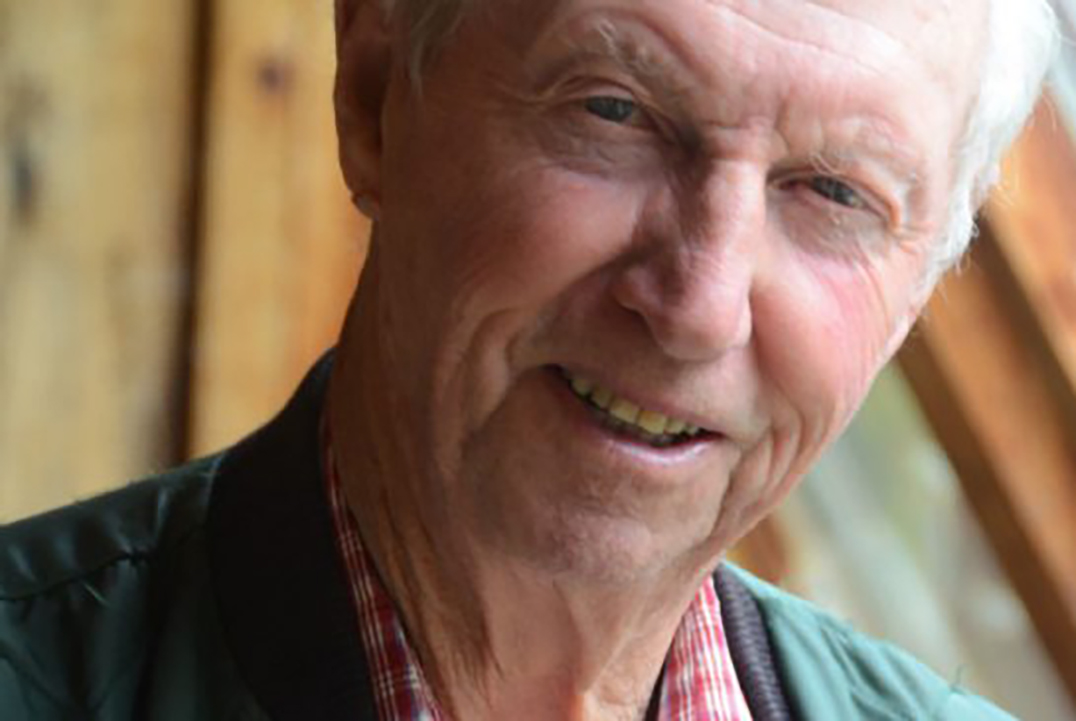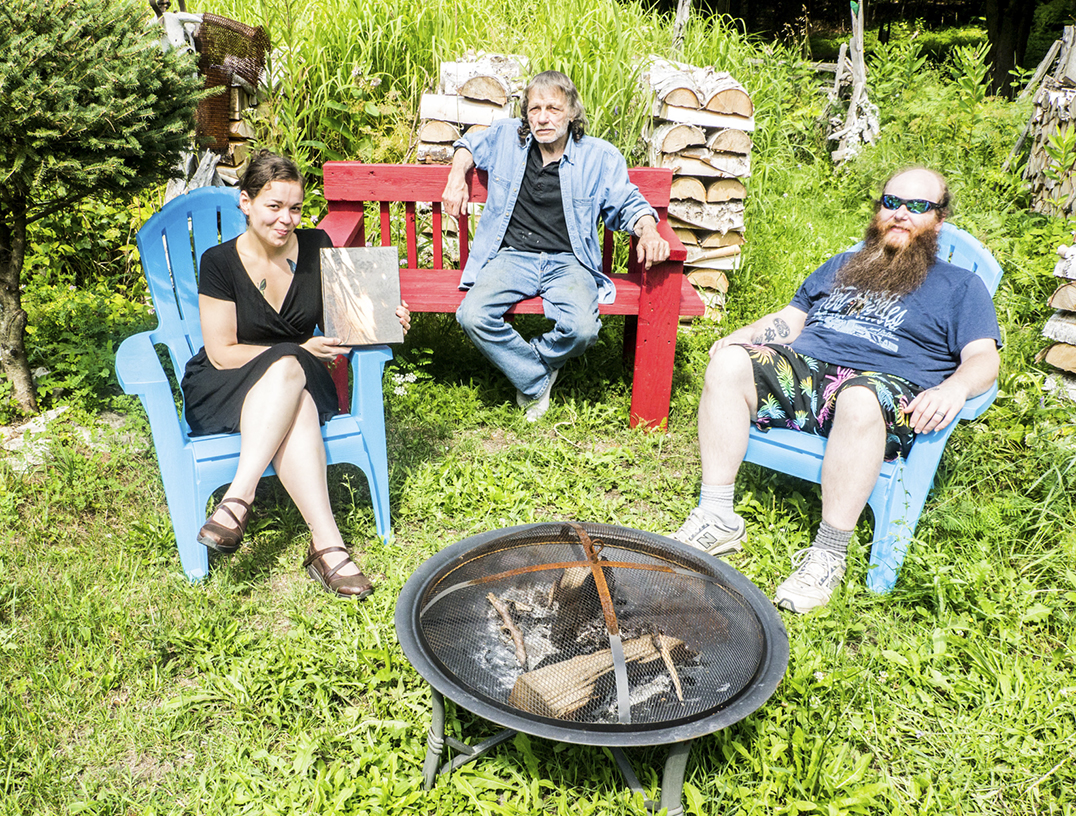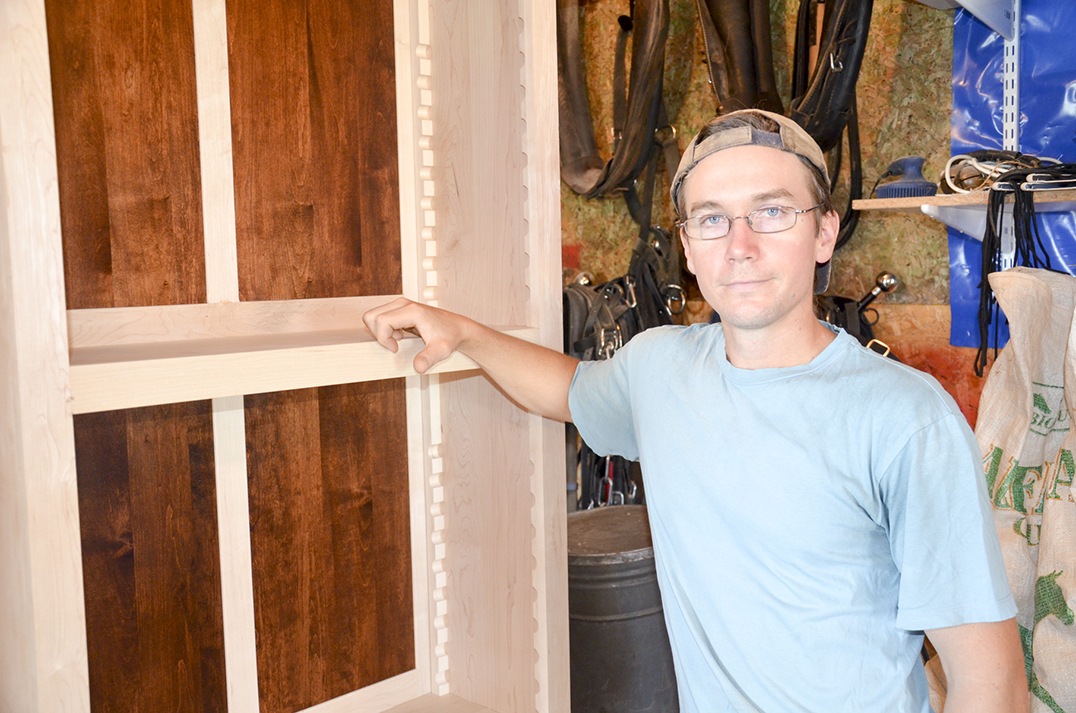Atomic attacks spawned lifelong anti-nuke activism
KAGAWONG— Ed Burt is a familiar figure at nuclear power and nuclear waste open houses, rising to voice his opposition the expansion of nuclear power, Mr. Burt has, time and again, proven to be a tremendous storehouse of facts and cautionary tales about the “nuclear gen ii” that is supposed to solve our energy needs. But it was the profound impact of a 1945 radio broadcast describing the horror and devastation visited upon the Japanese cities of Hiroshima and Nagasaki atom bombed at the end of the Second World War that first set a 16-year-old Ed Burt’s feet on a path of an anti-nuclear activism that was to last a lifetime.
“It did, it really had an impact on me and it still has,” said Mr. Burt. “I was going on 16 and we lived on a farm on Poplar Road, just three miles outside Gore Bay.”
The young Ed Burt, like many people at the time, hungered for news from the front. This was not only the days before the instant communication of the Internet or even television with its 24/7 CNN coverage of global conflicts.
“Of course nobody had television, we didn’t even have electricity at the farm in those days,” he said. Instead, the family had a radio, powered by an old car battery. “Dad chopped out a blade for a wind generator and we hooked up a belt to an old car alternator to charge the battery for it,” he said. “I think my father really did it just for me.” Whenever the power in the battery ran down, young Ed would be the one to climb the tower and set the wind tower blades to the wind. “When the battery was done charging, we would swing the blades out of the wind and tie the tail so it wouldn’t swing back. It was the only time we used the wind generator.”
Ed Burt would sit in front of the radio, listening to the reports coming from Europe and the Pacific theatres, horrified by the carnage being visited on cities around the world.
“The war, I could write a book about the war,” he said. “It was more devastating than the 30-Years War in the 1600s.”
In fact, Mr. Burt said that he believes the two world wars were really just one big 30-year war with a pause in hostilities taking place from the signing of the Armistice in 1918 and the unconditional surrender of the Nazi and Japanese regimes in 1945.
Another source of news accessed by the young Mr. Burt were the newsreels that were shown before the feature film at the movie theatre.
“Tom Porter played the movies,” he recalled. “In the newsreels before the movies it told us about what was happening in the war. I really got absorbed in that.”
The war touched everyone. Mr. Burt recalled meeting a neighbour driving a horse and buggy on the road one day, a man who was usually loquacious and friendly. “He didn’t want to talk,” recalled Mr. Burt. “I later learned that he had just received the news that his son had been killed in the war.”
Mr. Burt wasn’t totally absorbed in the news of the war, however, like many young people today he also liked listening to music programs on the family radio. One day, over 70 years ago now, an event occurred that was to ruin his enjoyment of the radio for many, many years.
“My favourite program was interrupted by a news bulletin announcing that an atomic bomb had been dropped on Hiroshima,” he said. “I listened to the details of the bombing and I almost lost my faith in humanity.”
Although the bombing of the Japanese cities in 1945 has often been credited with bringing the war to a close, to those following the development of events of the day with an open intellect there seemed little doubt that the end of the conflict was near.
“I believed the war was almost over,” he recalled. “It was bad enough that the war was killing my friends and neighbours.”
Mr. Burt was even more horrified to later learn that the dropping of the atomic bombs was “an experiment to see how people would react,” he said. With the release of ever more details of government discussions and strategies near the end of the war and the beginning of the atomic era, Mr. Burt’s initial assessment has been reinforced rather than dispelled with each revelation.
In the immediate aftermath of the radio announcement, Mr. Burt’s consciousness was sent reeling. “I never listened to the radio for 20 years after that,” he said. “Even today, when I come into the house and the radio is on I turn it off.” Before that fateful news bulletin, Mr. Burt would listen to half-hour music programs. Despite his continued love of music and the central role music still plays in his spiritual self and philosophy, the radio has remained forever tainted in his memory.
“Music,” he said, channeling the views of Rudolf Joseph Lorenz Steiner, an Austrian mystic, philosopher, social reformer, architect and esoteric, “helps strengthen logical thinking.”
The use of the atomic bomb and the horrors of war set Mr. Burt’s determination to not be a part of militarism in any way, shape or form. “Oh I know we should stop the tyrants,” he said. But he could not bring himself to support violent conflict resolution.
“When I finally began to make enough money to pay taxes, I calculated the amount of our tax dollars used to develop the war machine,” he said. “It came to 9.6 percent. I withheld that amount from my tax payment. Later it grew to 10.6 percent and then 12.8 percent. I received more phone calls from Revenue Canada than anyone else on the Island,” he chuckled.
A determined pacifist, Mr. Burt said he hoped he had the courage to face violence in a different way. “I hope that if I ever saw someone walking up my drive with a rifle coming to kill me that I would have the courage to open the door and let him in,” he said. “Every time I hear people talking about winning the war…‘we won’…what a stupid attitude to have.”
When the atomic era began, Mr. Burt said he was instantly leery of the KoolAid being sold to the public. “They talked about all our energy needs being solved,” he recalled. “Soon there would be nuclear generators with fuel cells as big as your thumb that would run for a year. It would transform our lives. We would be growing lettuce at the North Pole.”
That was long before the horror stories of Chernobyl, Three-Mile Island or the recent nuclear disasters at the earthquake damaged reactors in Japan that are still spewing radioactive water into the Pacific Ocean.
“They didn’t talk about the nuclear waste being buried for hundreds of thousands of years, the hidden costs, the misery of low level radiation that people have been suffering from one end of the globe to the other,” he said. “The accumulation of tremendous debt, I can’t see it any other way. We could have made a deal with Manitoba and Quebec to access clean power.”
Mr. Burt suggested that the echoes of English Canadian racism and the historical echoes of religious conflicts played a role in the decision to not work with the Francophone population of Quebec. “I think the Protestant/Catholic issues between the French and the English did play a part in those decisions.”
Although one might be tempted to think of Mr. Burt as an embittered old man, tending his legendary gardens and muttering about the inhumanity of man, nothing could be further from the truth.
“I do believe the world is getting to be a better place, we are entering an era of love,” he said. “But we have to rein in the rush for more and more resources to build things we don’t really need. We don’t need a better telephone. It is well past time that we get together as a world entity and say ‘enough is enough’.”
Mr. Burt pointed to the current angst in California, whose drought means the loss of walnuts and tomatoes from many grocery store shelves. “If we had better planning in Canada, we could have grown those tomatoes ourselves.”
“If we cared for people around the globe,” he said, “we could take better care of ourselves.”





